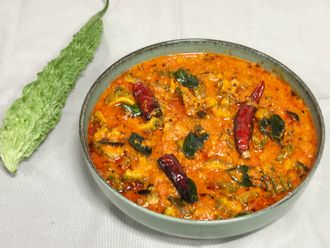
On Monday, the World Health Organisation’s International Agency for Research on Cancer (IARC) announced that processed meat is carcinogenic and that red meat, including beef, veal, pork and lamb, probably causes cancer. The announcement has many rethinking what they eat and whether they can ever enjoy a guilt-free hot dog or hamburger again. It’s critical to look beyond the headlines to answer those questions.
What happened?
The IARC decided to study processed and red meat on the advice of an international advisory committee that highlighted the mounting evidence linking both to cancer. This month, 22 scientists from 10 countries met in Lyon, France, to figure out once and for all what those risks are.
What did they look at?
The group looked at more than 800 studies from around the globe. The relationship between meat and colorectal cancer was the most widely studied. In their assessment, the researchers gave the most weight to prospective studies — ones that followed a group of participants for a period of time to track their health outcomes.
What did they decide?
After reviewing all of the information, the working group concluded that there is enough evidence to classify processed meat as carcinogenic. Processed meat refers to meat that has been cured, smoked, salted or otherwise processed to increase flavour and shelf life: anything from bacon to ham to lunch meat to pepperoni.
What were the risks?
Specifically, the group ruled that processed meat increases the risk of colorectal cancer. A person who consumes 50 grams of processed meat a day (roughly equivalent to a hot dog, two pieces of bacon or a few slices of smoked turkey) has an 18 per cent increased risk of developing that type of cancer.
Is it the same for red meat?
The story was slightly different with red meat. The working group found that while there is evidence that red-meat consumption raises the risk of colorectal cancer, the currently available data is not sufficient to definitively declare red meat as carcinogenic. The group also pointed out that some studies have found that red meat may increase the incidence of pancreatic and prostate cancer.
Is all meat ranked the same?
Although red meat, such as beef, pork and lamb, contains important vitamins and nutrients, the IARC said consumption leads to the formation of N-nitroso compounds, which are carcinogenic, in the colon. Cooking meat can also produce certain carcinogenic chemicals.
Are they right?
More studies are needed to figure out the exact underpinnings of the relationship between meat and cancer, but enough evidence is in to determine that it is a risk.
So is meat as deadly as tobacco?
It is incorrect and misleading to equate the dangers of smoking and processed meat. What they now have in common is that they are both in Group 1, IARC’s list of known carcinogens. Group 1 carcinogens are those for which the evidence clearly shows that they cause cancer. Red meat belongs to Group 2A because there is limited evidence that it probably causes cancer.
And the numbers don’t add up
The risks associated with tobacco products are much greater than processed meat, however. The Global Burden of Disease Project estimates that 34,000 people die of cancer every year as a result of consuming processed meat. Compare that with the more than one million people who die from cancer worldwide annually as a result of tobacco. Not to mention the millions of others who die as a result of tobacco-induced respiratory diseases, heart disease and other problems.
So I shouldn’t eat meat?
Not necessarily. Declaring that something is carcinogenic lets people know that it poses a risk. It doesn’t mean we should banish the item in question. As the American Cancer Society points out, there are plenty of cancer-causing substances that are unavoidable, such as radiation, to which we are exposed through the soil as well as X-rays and other medical procedures, as well as estrogen, which occurs naturally in the human body.
What else is on the dangerous list?
Another known carcinogen on the IARC’s Group 1 list? Wood dust. Of course, that doesn’t mean anyone who has ever walked through a lumberyard or endured a major home renovation is going to develop a disease as a result.
How big are the risks?
Cancer Research UK, a London-based charity, crunched the numbers to provide some much-needed perspective. According to the organisation, 61 out of every 1,000 people in Britain will develop colorectal cancer during their lives. For those that eat the least amount of processed meat, that number is 56 out of 1,000.
So not a great risk?
Using the results of a study conducted in 2011 by the World Cancer Research Fund, the rate for people who consumed the highest amount of processed meat is 66 out of 1,000. In other words, eating a diet rich in bacon, ham, salami and other processed meats does pose a higher risk, but it isn’t the equivalent of a cancer diagnosis.
What about ‘natural’ processed meats?
According to the labels, those types of products are made using such easy-to-pronounce ingredients as sea salt, vinegar and cultured celery extract. However, that doesn’t mean those products have a lower cancer risk or are otherwise healthier. The ‘natural’ preservatives are still a source of nitrates and nitrites, compounds that have been linked to an increased cancer risk.
Is cancer the only concern?
Keep in mind that cancer is just one negative health outcome. Choosing salty, fatty, highly processed meat products can also raise the risk of high blood pressure, obesity, cardiovascular disease and a host of other health issues.
So it’s all about moderation?
Sure, you can enjoy a nice steak dinner, but don’t forget about fruits, vegetables, fish and grains. Health experts recommend people limit their consumption of red meat to three times a week and to reserve processed meat for special occasions.
















